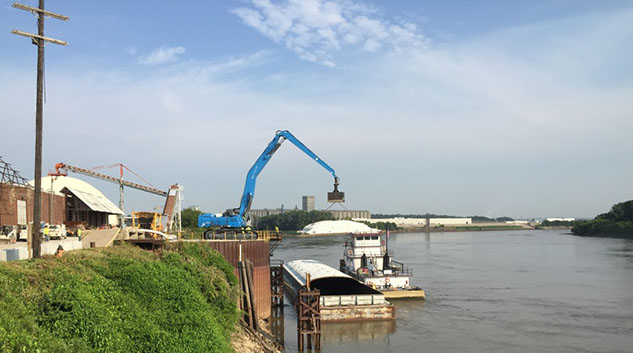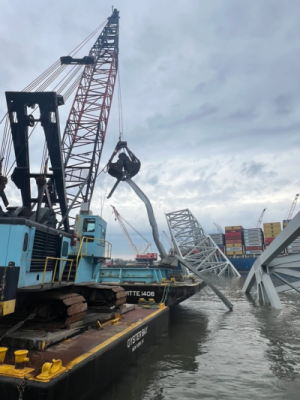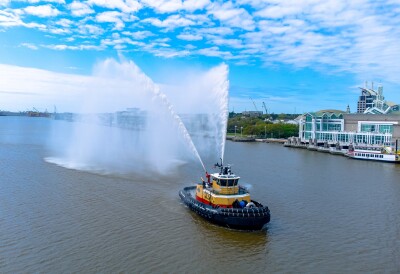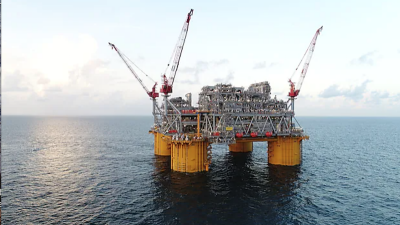In 2007, the Port of Kansas City on the Missouri River closed because of the lack of traffic through the port authority’s facilities. Economic troubles, low water levels and public perception were behind the move.
“There were two things that occurred: the recession that really hit in 2008 and the perception of low water levels interfering with navigation,” said Brian Ross, statewide waterways and freight manager, multi-model office, Missouri Department of Transportation. “There is a private operator who has been on the river for 37 years, and he said the only time in those years that he wasn’t able to ship was because of high water. And that only happened once.”
There are three public ports on the river in Missouri — Kansas City, Boonville and the St. Joseph Regional Port Authority. “The state’s always been interested in keeping commerce moving on the Missouri,” said Ross. “It’s been a matter of getting some funding from the state legislators.”
The money came through, partly because public and private groups convinced lawmakers that the economic rewards could someday rival Missouri’s ports on the Mississippi River. “We have legislators who were convinced that it would make economic sense to make some key investments.”
Back in September 2015, Port KC president and CEO, Michael Collins, said the reopening of the port, “provides efficient use of our waterway as a navigable resource for regional and global trade and serves as a support nexus to rail and roadway shipping.”
The first two materials to move through the port were both recyclables. The first barge to dock at the port carried mill scale for Central Plains Cement. The mill scale was blended with cement and made into asphalt. The first barge loaded at the port carried scrap metal to Peoria, Ill., that was melted and made into steel.
Port KC has partnered with KAW Valley Companies, which serves as the operator for the port facility. Kaw Valley began as a sand and gravel mining and distribution company and has diversified its operations into recycling, demolition, excavation, grading and now port operations. “We don’t have numbers yet for 2015,” said Ross, “but we know they will show an increase. There’s real value in river transportation as a whole.”





